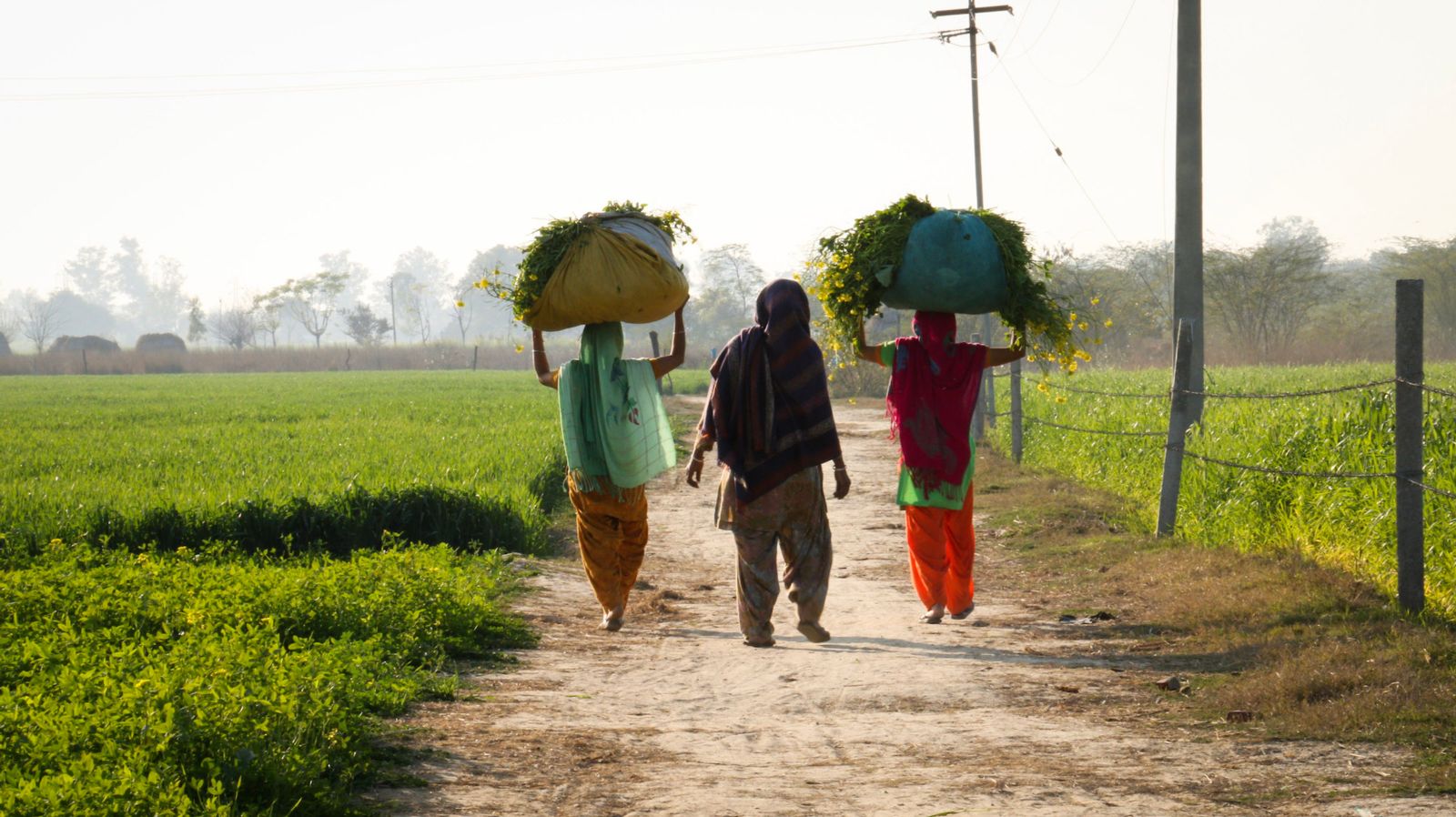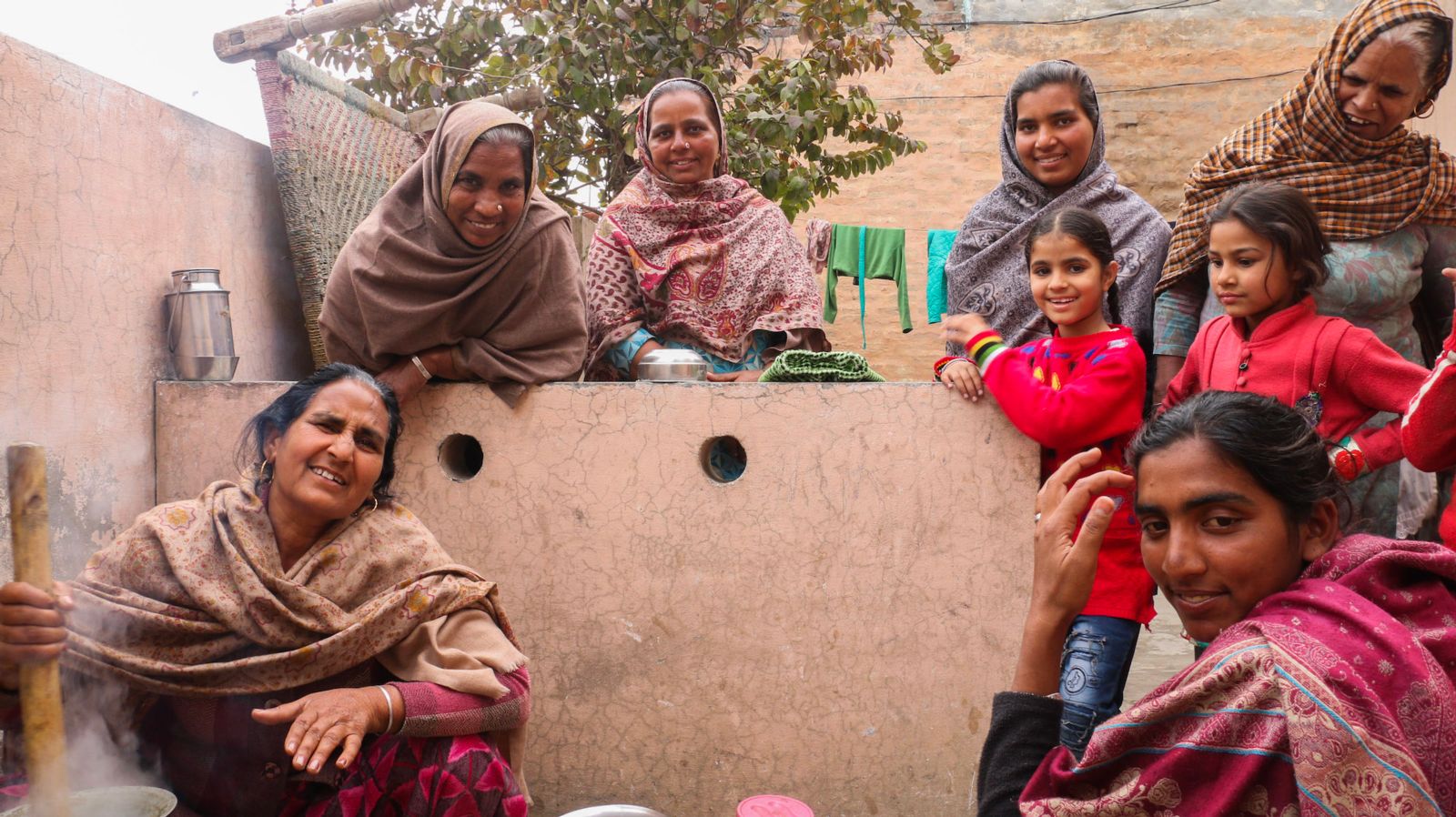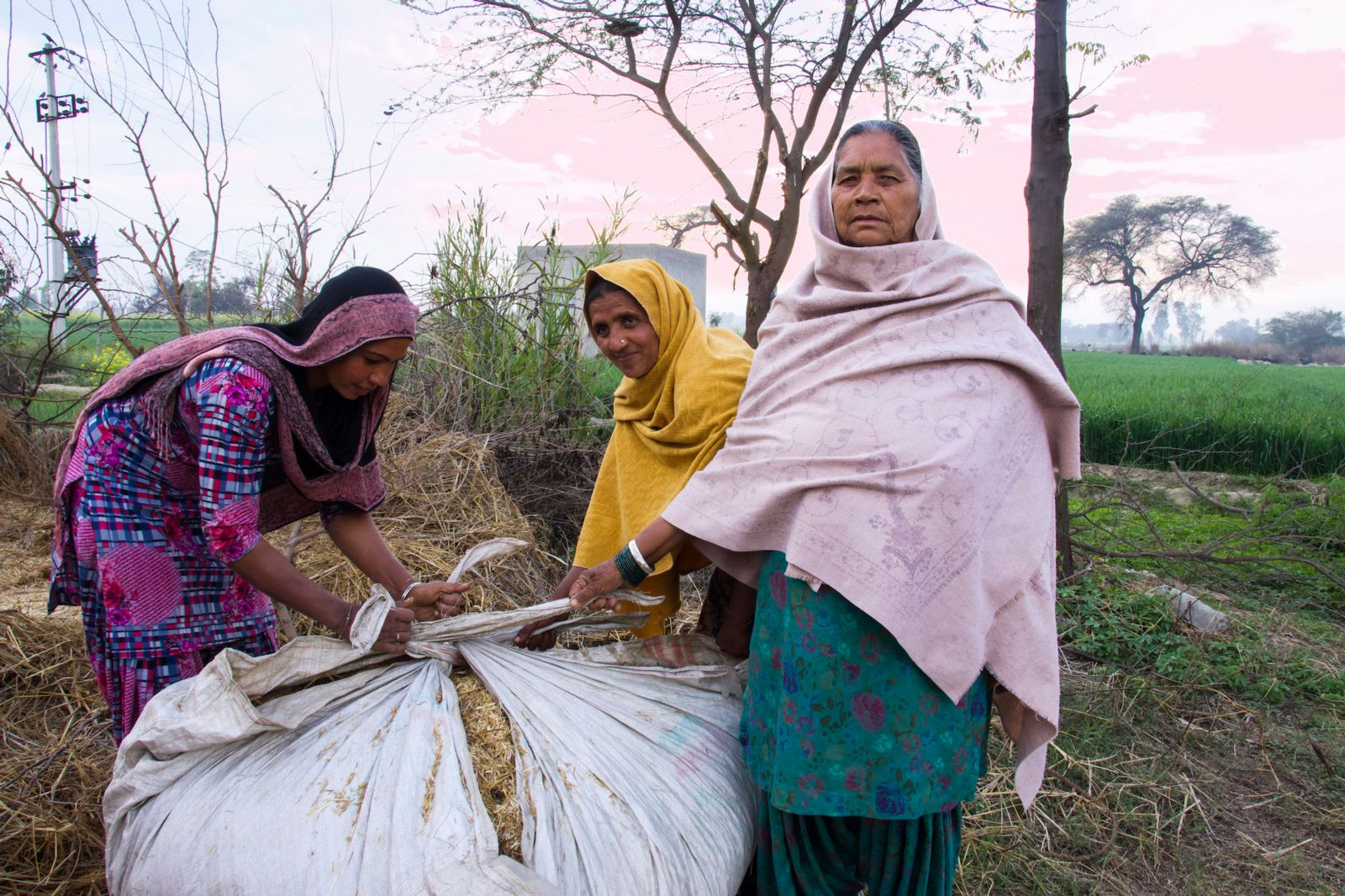
Carrying Mustard Greens. Punjab, India.
Stories about Dalit women often go untold, even though women of this social category continue to face discrimination in the caste system as the most oppressed social group in India. In Punjab, North India—where about 32% of residents are Dalit— the women in one village share accounts of significant discrimination and social pressure. In response to this treatment, Dalit women from 115 families in this village fought and won their right to cultivate land that does not belong to upper caste men.
Unlike the rest of India where caste interactions are based on a social group’s proximity to Hindu rituals and texts, Punjab’s unique system places the landowners—or Jat farmers—as masters that subordinate the landless “Scheduled Castes” (SC), a broad categorization of people oppressed by the ascriptive caste system in India.
In Punjab, local revenue authorities hold land auctions biannually, the auctions are divided along caste lines for people who belong to the “general” category, and another for Scheduled Castes. However, since the 1950s, Jat farmers have abused these laws to acquire land by placing proxy Dalit candidates in the local auctions, in order to maintain Jat dominance over land.
But Dalit women based in the Sangrur District of Punjab came together to form a movement that boycotted these rigged land auctions and reinstated the implementation of land laws in the state. This social transformation is setting a precedent for Punjabi Dalit farmers fighting for their dignity in a complex context.
Dalit women based in the Sangrur District of Punjab came together to form a movement that boycotted these rigged land auctions and reinstated the implementation of land laws in the state.
In 2014, the Zamin Prapti Sangharsh Samiti, a sociocultural Punjabi movement led by (among others) an upper caste Brahmin married to a Dalit woman, shed light on these conditions of landless Dalit farmers in the state. As the movement became stronger, more evidence emerged on the inaccessibility of land for Dalit farmers and the particular vulnerability of Dalit women and violence towards them. The movement argued that even under an unequal social system, laws like the Punjab Village Common Lands Act 1961 and the Nazool Lands (Transfer) rules 1956, guarantee Dalit farmers the rights to cultivate and own a part of common property village lands.

Cooking mustard leaves. Punjab, India.
Even though women members of this land movement face consequences such as beatings and having their families jailed and silenced, they persevered in efforts to implement the laws protecting their rights. For Dalit women, farming is often related to procuring water or fodder for their animals, but even these everyday activities are wrought with instances of violence. For example, one woman, Damanpreet Kaur, shared:
“I was once going to cut wheat in the fields, and they set a tractor after me saying, ‘You leave this place now!’ Even when the tractor was behind me, I continued to stand there. The others ran away, but I stayed and told them [Jat farmers] that they should hit me if they had the courage to do it… They never used to hit us with the tractors, but they used to threaten us… To hit and kill someone is not easy…”
Nonetheless, in 2014, these Dalit women farmers accomplished the first successful step towards cooperative farming as they boycotted the land auction, acquired common lands, and began to pool their meagre financial resources to lease village common lands. Successively, the cooperative began to sow and farm the common lands, to provide two quintals of rice (200kg) to each family member, and to make enough profits for the farmers to pay off their loans and debts. Now there is a renewed sense of confidence among the women of the community as they gain autonomy in tilling land, procuring food, and avoiding the conflict with Jat farmers who ill-treated them.
However, while many Dalit farmers continue to boycott auctions and gain what is rightfully theirs, there are still several emerging obstacles. Despite the gains of the movement, various factions exist within the village and conflicts emerge from allegiances to various political parties. Indeed, as Maya—one of the women’s movement leaders—speaks, there are sounds of music flowing in from the local “Jaggo”, a celebration by the “anti-Dalit” community, who are mainly farmers that side with upper castes in the village.

Packing hay. Punjab, India.
In addition, the enforcement of a law has brought changes to land use in the region. Just as the Dalit community anticipated, on January 25th, 2020, the government amended the law on common property lands. This change ensures that businesses and industries can now buy common property lands in Punjab and once again puts the livelihoods of Dalit cooperative farmers at risk.
In fact, many younger Dalits are now aspiring to regain their dignity in a caste-divided society by escaping from agriculture altogether. For example, Maya has daughters that have recently completed school and prefer to work in government jobs or continue studying, as opposed to working in agriculture.
There is a renewed sense of confidence among the women of the community as they gain autonomy in tilling land, procuring food, and avoiding the conflict with Jat farmers who ill-treated them.
Another upcoming challenge for the Dalit farmers is the news of the possible industrial takeover by Lakshmi Mittal, an industrialist who visited the region with plans to build a petrochemical plant in Sangrur District. This news is creating confusion among the farmers of the cooperative, who wonder what will happen to their gains on common property lands. It is a tense atmosphere; they fear that recently acquired lands will be handed over to the upcoming industrial park without their consent.
In response to the industrialists, the residents of Balad Kalan signed a resolution saying that they would only hand over village lands that lie across the river. The river acts as a marker as they have to make the painful decision of which lands to give up to the industry. Despite this, the District Development PO, or local government official, stated that the farmers had already given their general consent to hand over land. The precedent set by industrial land takeovers in India has been to exclude local communities from their lands, rarely provide employment, and to torture and punish them for fighting for their rights or against environmental pollution, as corporations grab these lands and prioritize profits over the harmful effects of pollution from the industry.
Recently, the land movement demanded a 33-year lease on village common lands, which will ensure the future of coming generations. As Dalit women´s voices get stronger, and as they establish themselves through land cultivation, their movement resists.
Solidarity networks among Dalit women farmers arose from such shared experiences of humiliation from upper castes and challenges to obtain what is rightfully theirs. Not only did the gender and caste relations improve from solidarity and organized movement activity, but even in the face of new threats to their livelihoods, it has also given a renewed sense of hope around the future of agriculture and autonomy of farmers in the region.
In the interest of the farmers, all names have been changed or kept anonymous.
